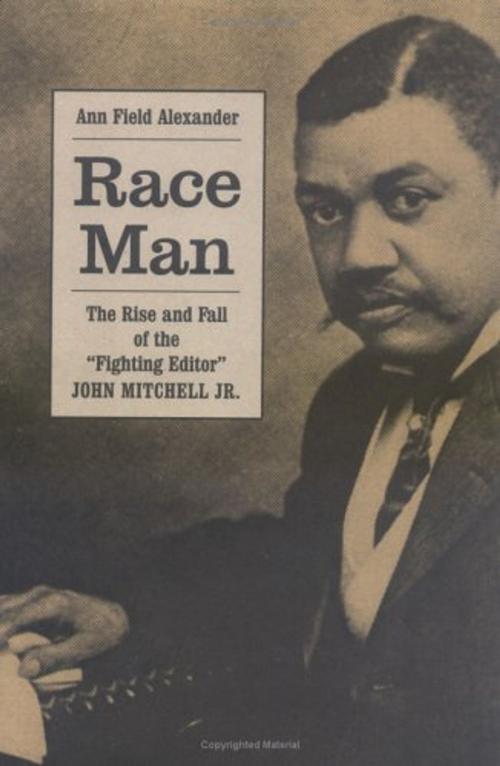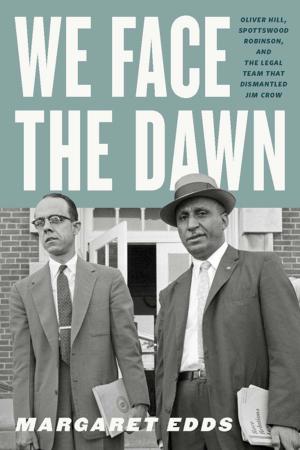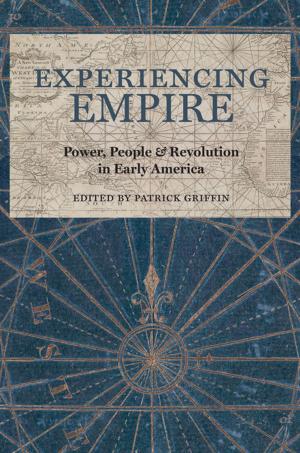Race Man
The Rise and Fall of the "Fighting Editor," John Mitchell Jr
Nonfiction, Social & Cultural Studies, Social Science, Cultural Studies, African-American Studies| Author: | Ann Field Alexander | ISBN: | 9780813924397 |
| Publisher: | University of Virginia Press | Publication: | October 29, 2002 |
| Imprint: | University of Virginia Press | Language: | English |
| Author: | Ann Field Alexander |
| ISBN: | 9780813924397 |
| Publisher: | University of Virginia Press |
| Publication: | October 29, 2002 |
| Imprint: | University of Virginia Press |
| Language: | English |
Although he has largely receded from the public consciousness, John Mitchell Jr., the editor and publisher of the Richmond Planet, was well known to many black, and not a few white, Americans in his day. A contemporary of Booker T. Washington, Mitchell contrasted sharply with Washington in temperament. In his career as an editor, politician, and businessman, Mitchell followed the trajectory of optimism, bitter disappointment, and retrenchment that characterized African American life in the Reconstruction and Jim Crow South.
Best known for his crusade against lynching in the 1880s, Mitchell was also involved in a number of civil rights crusades that seem more contemporary to the 1950s and 1960s than the turn of that century. He led a boycott against segregated streetcars in 1904 and fought residential segregation in Richmond in 1911. His political career included eight years on the Richmond city council, which ended with disenfranchisement in 1896.
As Jim Crow strengthened its hold on the South, Mitchell, like many African American leaders, turned to creating strong financial institutions within the black community. He became a bank president and urged Planet readers to comport themselves as gentlemen, but a year after he ran for governor in 1921, Mitchell's fortunes suffered a drastic reversal. His bank failed, and he was convicted of fraud and sentenced to three years in the state penitentiary. The conviction was overturned on technicalities, but the so-called reforms that allowed state regulation of black businesses had done their worst, and Mitchell died in poverty and some disgrace.
Basing her portrait on thorough primary research conducted over several decades, Ann Field Alexander brings Mitchell to life in all his complexity and contradiction, a combative, resilient figure of protest and accommodation who epitomizes the African American experience in the late nineteenth and early twentieth centuries.
Although he has largely receded from the public consciousness, John Mitchell Jr., the editor and publisher of the Richmond Planet, was well known to many black, and not a few white, Americans in his day. A contemporary of Booker T. Washington, Mitchell contrasted sharply with Washington in temperament. In his career as an editor, politician, and businessman, Mitchell followed the trajectory of optimism, bitter disappointment, and retrenchment that characterized African American life in the Reconstruction and Jim Crow South.
Best known for his crusade against lynching in the 1880s, Mitchell was also involved in a number of civil rights crusades that seem more contemporary to the 1950s and 1960s than the turn of that century. He led a boycott against segregated streetcars in 1904 and fought residential segregation in Richmond in 1911. His political career included eight years on the Richmond city council, which ended with disenfranchisement in 1896.
As Jim Crow strengthened its hold on the South, Mitchell, like many African American leaders, turned to creating strong financial institutions within the black community. He became a bank president and urged Planet readers to comport themselves as gentlemen, but a year after he ran for governor in 1921, Mitchell's fortunes suffered a drastic reversal. His bank failed, and he was convicted of fraud and sentenced to three years in the state penitentiary. The conviction was overturned on technicalities, but the so-called reforms that allowed state regulation of black businesses had done their worst, and Mitchell died in poverty and some disgrace.
Basing her portrait on thorough primary research conducted over several decades, Ann Field Alexander brings Mitchell to life in all his complexity and contradiction, a combative, resilient figure of protest and accommodation who epitomizes the African American experience in the late nineteenth and early twentieth centuries.















